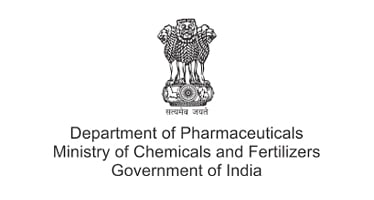Last Updated on November 13, 2020 by The Health Master
The Department of Pharmaceuticals (DoP) has issued revised guidelines for implementing the provisions of public procurement (preference to Make in India) Order (PPO)- 2017 DPITT guidelines for procurement of Make in India medical devices.
To download the revised guidelines, cluck here
The Department for Promotion of Industry and Internal Trade (DPIIT), pursuant to Rule 153 (iii) of the general financial rules 2017, had issued PPO – 2017 dated June 15, 2017 which was partially modified on May 28, 2018, May 29, 2019 and September 16, 2020.
According to Rajiv Nath, Forum Coordinator, Association of Indian Medical Device Industry (AiMeD), “The guidelines on PPO- 2017 are basically to align the PPO of DPITT with earlier guidelines.”
This is envisaged to promote manufacturing and production of medical devices in India with a view to enhancing income and employment of local population. It is aimed to give maximum preference to local companies.
“This will be a big boost to Indian companies as earlier it was restricted till drugs with reference to Drugs and Cosmetics Act (D&C) Act. With the inclusion of new medical device rules (2017) under the D&C Act, medical devices will also get preference as per the DoP and DPITT guidelines,” said All India Drug and License Holders Foundation (AIDLHF) president Abhay Pandey.
Also read: Cabinet approves PLI Scheme for Pharma among 10 key Sectors
DPIIT in order to facilitate the implementation of the PPO 2017 dated August 14, 2017 has identified Department of Pharmaceuticals (DoP) as the nodal department for implementing the provisions of the PPO 2017 relating to goods and services related to pharmaceutical sector. DPIIT has now decided that the nodal department for product category medical devices shall be DoP.
DoP in supersession of the guidelines issued earlier dated October 16, 2018 and December 12, 2019 has issues the revised guidelines. The DoP move gives priority to bidders of government contracts that use more local content. The revised order has introduced a concept of Class-I, II and non-local suppliers, based on which they will get preference in government purchases of goods and services.
Class-I local suppliers will get the most preference in all government purchases because their domestic value local content addition is 50 per cent or more. They will be followed by Class-II suppliers, whose local content value addition range is more than 20 per cent but less than 50 per cent.
For verification of local content, the Class I and II suppliers shall be required to indicate percentage of local content and provide self-certification that the item offered meets the local content requirement norms. Concept of Class-I supplier has been introduced so that in cases where local suppliers are to be given the order, even within that group we should give first preference to the ones whose domestic value addition is significantly high.
Under the revised guidelines, it is envisaged that all Central government departments, their attached or subordinate offices and autonomous bodies controlled by the Government of India should ensure that purchase preference will be given to domestic suppliers..
The Health Master is now on Telegram. For latest update on health and Pharmaceuticals, subscribe to The Health Master on Telegram.


